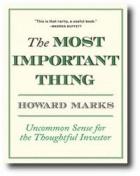A topic that is hotly debated between investors and the companies they own is whether "excess cash" is best returned via dividends or via share buybacks. With Halfords (LON:HFD) AGM coming up, and Halfords being a major component of my high yield portfolio, I need to take a view on this. Of course, where management and investors are agreed that significantly better returns can be generated by re-investing the cash in the business - either via investment for organic growth or by acquisitions, then clearly that is what should be done, but that is not always the case. "A bird in the hand being worth two in the bush" should also be borne in mind, i.e. a cash return is risk free whereas there is risk attached to reinvestment, from investors' POV.
There are certain special cases that I won't discuss here: e.g. investment trusts buying back shares for discount control. My investigation/conclusions relate to trading businesses.
Up until now, my view has been that buybacks can be justified - but only where shares can be bought sufficiently cheaply. I thought I ought to do some analysis to see whether this view is valid and what "sufficiently cheaply" is. For the purposes of my analysis, I imagined a business that is not growing but generates static post-tax earnings of £100m p.a.. I also assume that 50% of these earnings are distributed to shareholders. I then consider two cases over a 5 year period. In the first case the distribution is entirely in the form of dividends. In the second one, the company decides to distribute 25% as a dividend and 25% in the form of buybacks. Further, in the second scenario, I assume that the company's shares trade on a P/E of 8 throughout. Here are the results of this analysis:
| 2011 | 2012 | 2013 | 2014 | 2015 | |
| Earnings (£m) | 100 | 100 | 100 | 100 | 100 |












